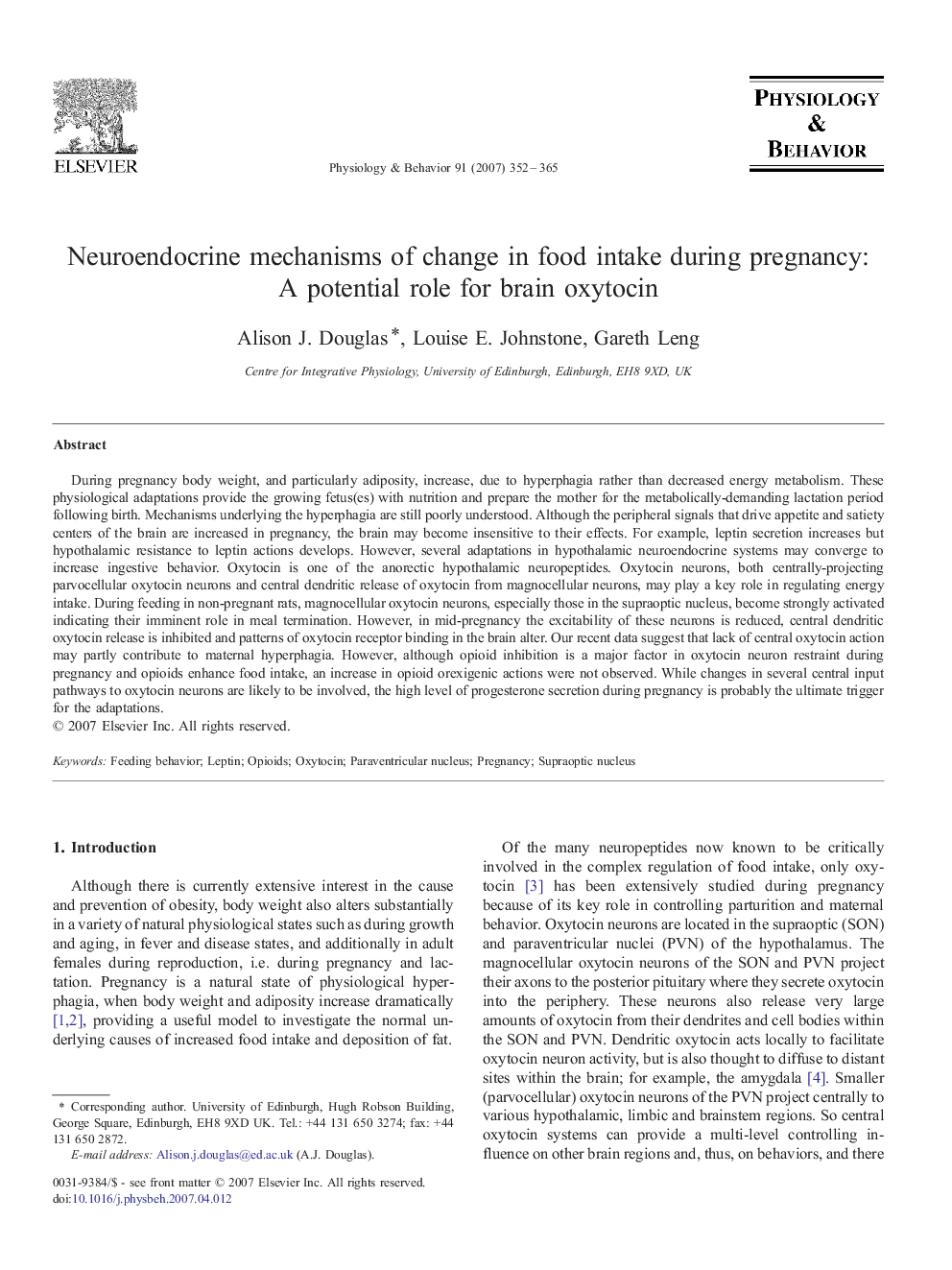| Article ID | Journal | Published Year | Pages | File Type |
|---|---|---|---|---|
| 2845799 | Physiology & Behavior | 2007 | 14 Pages |
During pregnancy body weight, and particularly adiposity, increase, due to hyperphagia rather than decreased energy metabolism. These physiological adaptations provide the growing fetus(es) with nutrition and prepare the mother for the metabolically-demanding lactation period following birth. Mechanisms underlying the hyperphagia are still poorly understood. Although the peripheral signals that drive appetite and satiety centers of the brain are increased in pregnancy, the brain may become insensitive to their effects. For example, leptin secretion increases but hypothalamic resistance to leptin actions develops. However, several adaptations in hypothalamic neuroendocrine systems may converge to increase ingestive behavior. Oxytocin is one of the anorectic hypothalamic neuropeptides. Oxytocin neurons, both centrally-projecting parvocellular oxytocin neurons and central dendritic release of oxytocin from magnocellular neurons, may play a key role in regulating energy intake. During feeding in non-pregnant rats, magnocellular oxytocin neurons, especially those in the supraoptic nucleus, become strongly activated indicating their imminent role in meal termination. However, in mid-pregnancy the excitability of these neurons is reduced, central dendritic oxytocin release is inhibited and patterns of oxytocin receptor binding in the brain alter. Our recent data suggest that lack of central oxytocin action may partly contribute to maternal hyperphagia. However, although opioid inhibition is a major factor in oxytocin neuron restraint during pregnancy and opioids enhance food intake, an increase in opioid orexigenic actions were not observed. While changes in several central input pathways to oxytocin neurons are likely to be involved, the high level of progesterone secretion during pregnancy is probably the ultimate trigger for the adaptations.
